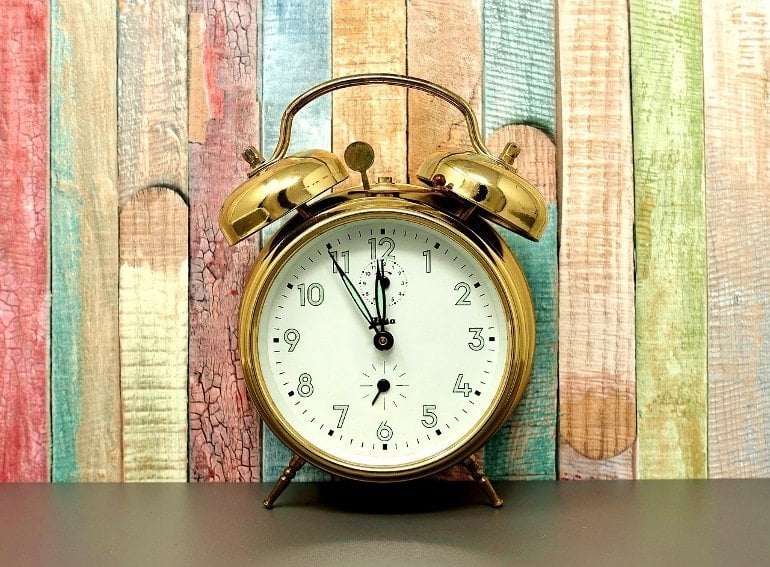Summary: Six or fewer hours of sleep at the time of vaccination reduces the body’s antibody response, researchers say.
Source: UCLA
How strongly a vaccine protects you may depend on getting enough sleep in the days before and after inoculation, finds a new meta-analysis examining the relationship between sleep duration and the body’s response to vaccination.
Sleeping fewer than six hours per night around the time of vaccination was associated with a robust decrease in antibody response, according to the multi-institution study published March 13 in Current Biology. Adults are typically recommended to get between seven and nine hours of sleep per night.
The meta-analysis included data on the association between sleep duration and antibody responses for the influenza and hepatitis vaccines. While comparable data on COVID-19 vaccination were not available, researchers said their study highlighted the need to identify simple behavioral interventions, such as sufficient sleep, that could improve the response to COVID-19 vaccination amid the ongoing pandemic.
The weakened antibody response in those with shortened sleep was so profound, it was similar to the decline in COVID-19 antibodies two months following vaccination with the Pfizer-BioNTech or Moderna shots.

“We have previously found that cognitive behavioral therapy, as well as mindfulness, robustly improve insomnia and also normalize various aspects of immunity, although it is not yet known whether insomnia treatment can augment vaccination responses,” said Michael Irwin, MD, a study co-author and director of the Cousins Center for Psychoneuroimmunology at the Jane and Terry Semel Institute for Neuroscience and Human Behavior at UCLA.
The researchers also examined the data by sex, since women typically have a stronger vaccination response than men. There was a robust association between sleep duration and antibody response in men, but they said more data are needed for women because the studies did not control for variations in sex hormone levels, which are known to affect immune function.
Large-scale studies are also needed to determine when people should get sufficient sleep to promote an optimal vaccine response around the time of inoculation, the researchers said.
Other authors include Karine Spiegel, Amandine E. Rey, Anne Cheylus, Kirean Ayling, Christian Benedict, Tanja Lange, Aric A. Prather, Daniel J. Taylor, and Eve Van Cauter. The authors declared no competing interests directly related to this study.
About this sleep and vaccination research news
Author: Jason Millman
Source: UCLA
Contact: Jason Millman – UCLA
Image: The image is in the public domain
Original Research: Open access.
“A meta-analysis of the associations between insufficient sleep duration and antibody response to vaccination” by Michael Irwin et al. Current Biology
Abstract
A meta-analysis of the associations between insufficient sleep duration and antibody response to vaccination
Highlights
- Insufficient sleep (<6 hours/night) around vaccination reduces the antibody response
- The reduction is similar to the waning of COVID-19 vaccine antibodies over 2 months
- The association seems robust in men, but more data are needed in women
- Optimizing sleep duration around the time of vaccination may boost antibody response
Summary
Vaccination is a major strategy to control a viral pandemic. Simple behavioral interventions that might boost vaccine responses have yet to be identified. We conducted meta-analyses to summarize the evidence linking the amount of sleep obtained in the days surrounding vaccination to antibody response in healthy adults.
Authors of the included studies provided the information needed to accurately estimate the pooled effect size (ES) and 95% confidence intervals (95% CI) and to examine sex differences.
The association between self-reported short sleep (<6 h/night) and reduced vaccine response did not reach our pre-defined statistical significant criteria (total n = 504, ages 18–85; overall ES [95% CI] = 0.29 [−0.04, 0.63]).
Objectively assessed short sleep was associated with a robust decrease in antibody response (total n = 304, ages 18–60; overall ES [95% CI] = 0.79 [0.40, 1.18]). In men, the pooled ES was large (overall ES [95% CI] = 0.93 [0.54, 1.33]), whereas it did not reach significance in women (overall ES [95% CI] = 0.42 [−0.49, 1.32]).
These results provide evidence that insufficient sleep duration substantially decreases the response to anti-viral vaccination and suggests that achieving adequate amount of sleep during the days surrounding vaccination may enhance and prolong the humoral response.
Large-scale well-controlled studies are urgently needed to define (1) the window of time around inoculation when optimizing sleep duration is most beneficial, (2) the causes of the sex disparity in the impact of sleep on the response, and (3) the amount of sleep needed to protect the response.






